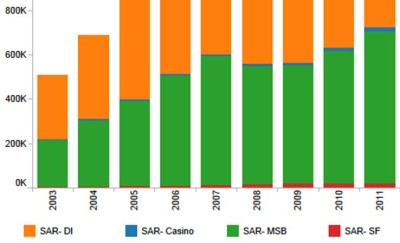DSA president, Alison Jimenez, was recently quoted in a moneylaundering.com article by Valentina Pasquali titled “Account Monitoring Lapses Cost California Brokerage.”
Finra AWC
Finra issued a fine of $50,000 against JKR & Company as detailed in the Letter of Acceptance, Waiver and Consent. Among the issues noted by Finra was the “failure to identify and investigate the above-described red flags during the account-opening process.”
Finra spelled out significant account opening red flags such as a corporate customer formed in a country with heighten money laundering risk and a customer barred by the SEC from participating in the offering of penny stocks.
However, the AWC also noted documentary issues that might distract firms from the greater priority of detecting and preventing financial crime and money laundering.
CIP and Notarization Issue
First, the AWC states:
The firm also did not recognize that the copy of the passport it collected for Customer 2 was not properly certified, reflecting only a stamp from a Notary Public in the State of Florida, instead of an affidavit sworn to by Customer 2 as the custodian of the passport, as required by the American Association of Notaries’ rules governing copy certification by a document custodian.

Customer Identification Program (CIP) rules do not require notarization of identification documents, nor does the AWC state that the firm’s policies & procedures required notarized copies of customer IDs. The AWC also did not suggest that the passport for Customer 2 was fake or that the firm did not know the true identity of the customer.
Physical Address vs. Retail Mail Box
Next, the AWC states:
JKR also failed to identify that the legal address for one of the accounts was not a physical address, but instead, was a personal mailbox at a retail store.
The FFEIC Manual explains the address requirement:
For a “person” other than an individual (such as a corporation, partnership, or trust): a principal place of business, local office, or other physical location.
However consider the millions of self-employed persons and small businesses that use retail mail boxes as their legal address, whether because they work from home (especially now in the time of COVID), or have a “virtual office” or occasionally use a office-sharing space like WeWork. These customers will likely plug in the mail box address when completing account opening paperwork, without any nefarious intent.
How is the financial system any safer now that the Broker-Dealer has a Google Earth picture of a home or WeWork location versus a UPS store?
While CIP is an important part of the AML regime, it’s not clear that had the firm noticed these two issues the outcome would have been any different.
Signaling Regulatory Priorities
Financial institutions look to enforcement actions to understand regulators’ AML priorities. By including the address and notary issues in the AWC, Finra is signaling to BD’s that those are the most pressing concerns for the industry.
Which led to my quote in the moneylaundering.com article:
“Other broker-dealers may end up scouring their customer records to see if they have similar documentary issues … and that could draw funds and attention away from priorities identified in the National Strategy for Combatting Terrorist and Other Illicit Financing such as healthcare fraud and corruption.”




